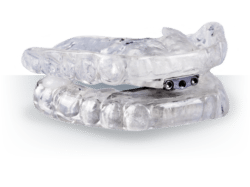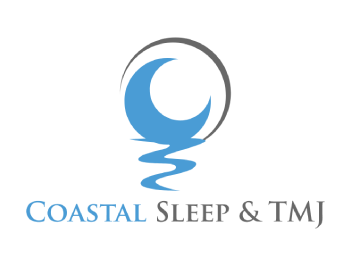Sleep apnea is a dangerous sleep disorder with symptoms that you shouldn’t ignore. According to the American Sleep Apnea Association, around 22 million people suffer from sleep apnea. The most common cause of sleep apnea is when you have a blocked airway, either by the tongue falling back in the throat or by excessive tissue in the airway. The blockage causes a person to stop breathing for a few seconds before they resume again.
Seeking treatment for Sleep Apnea is crucial to prevent the serious health issues associated with this condition. Without treatment, this condition can lead to many health issues that can impact your quality of life. High blood pressure, chronic heart failure, atrial fibrillation, stroke, and other cardiovascular problems are just a few of the health risks of Obstructive Sleep Apnea, the most widespread type of sleep apnea. The link between sleep apnea, type 2 diabetes, and depression is very common to see in patients.
Dr. William Harper is Board Certified in Dental Sleep Medicine and offers oral appliance therapy to his patients from Norfolk, VA who suffer from sleep apnea. Dr. Harper works with many physicians and will help you through the process of getting a diagnosis and treatment. A medical doctor needs to diagnose Obstructive Sleep Apnea (OSA), so don’t rely on online tests before visiting Dr. Harper.
About Sleep Apnea
Sleep apnea sufferers constantly stop breathing during sleep, sometimes hundreds of times in a single night! Normal breathing ceases because muscles in the back of the throat relax causing the airway to collapse or close. The patient is momentarily unable to breathe, thus cutting off oxygen to vital organs.
The person will be unable to take in enough air and lower the amount of oxygen the body needs. The brain is able to sense that they aren’t breathing and will signal them to wake up to reopen their airway. This is often so brief that they don’t know they are waking up. Yet, the patient will feel very tired in the morning because of the bad quality of sleep.
Diagnosing a sleep disorder will normally involve your physician and/or other specialists as well as Dr. Harper. Your physician is the medical professional that can diagnose you with sleep apnea. You will most likely need to undergo sleep testing to get an accurate diagnosis.
Symptoms of Sleep Apnea
X-rays and exams will also look for signs of a blockage in your airway. Most importantly, your medical team will review your medical history and discuss your symptoms. Common signs we look for include:
- Loud snoring (often mentioned by a sleeping partner)
- Suddenly gasping for air when sleeping
- Snorting or choking while sleeping
- Daytime sleepiness
- High blood pressure
- Having a headache upon waking up
- Feeling very tired even after sleeping for enough hours
- Having issues focusing or concentrating during the day
- Falling asleep often during the day
- Feeling depressed
- Unusual irritability
- Waking up to a dry mouth
Sleep Apnea Treatment in Norfolk, VA

While the CPAP is the go-to standard treatment for sleep apnea, it has a very low compliance rate among patients. The majority of the complaints are that the CPAP machine is uncomfortable and obtrusive. However, a common modern treatment for sleep apnea is an oral appliance, which you place in your mouth to keep the airway open.
Coastal Sleep & TMJ focuses on treating patients from Norfolk, VA using comfy oral appliances. We offer many types of appliances to fit your individual needs.
Dr. Harper will work with you to find the appliance that will help you find relief from your sleep apnea symptoms. Your sleep appliance works by moving your jaw to a forward position to increase the size of the airway. This will reduce air resistance which leads to snoring and sleep apnea.
There are many types of oral devices for sleep apnea, and they all work differently. Some are hard plastic or metal that go over the teeth to push them apart so that there’s more space in the mouth for breathing. Others go behind the teeth and hold them together so that they don’t fall back into place while you’re sleeping. Some have a soft plastic or a silicone base with a wire frame at one end that goes over your upper teeth to keep them from shifting.
The most common type, though, is the very thin wire that goes over the teeth and pushes them closer together. We call this type a retainer or a Mandibular Advancement Device (MAD). The wire moves up and down in your mouth to keep your upper teeth from moving when you sleep, so that you can breathe more easily.
Why Oral Appliances Work Better Than CPAP for Some People
CPAP machines (the mask with a hose) are a common sleep apnea treatment, but many people stop using them because they’re bulky or uncomfortable. Oral appliances are a simpler option. They look like a sports mouthguard or retainer and gently shift your jaw forward to keep your airway open. They’re quiet, easy to travel with, and don’t require electricity.
Dr. Harper can custom-fit one to your mouth so it’s comfortable to wear all night. While CPAPs work well for severe cases, oral appliances are often the better choice for mild to moderate sleep apnea or for people who can’t tolerate a CPAP.
Simple Ways to Reduce Sleep Apnea Symptoms at Home
While you should always see a doctor for sleep apnea, small changes can help you breathe easier at night:
- Sleep on your side (not your back) to keep your airway open.
- Avoid alcohol before bed. Alcohol relaxes throat muscles and makes blockages worse.
- Stay at a healthy weight. Extra weight can squeeze your airway.
- Try nasal strips or allergy meds if congestion makes breathing harder.
These tips aren’t a cure, but they can work alongside treatments like oral appliances to help you sleep better. When you’re ready to get professional help, give us a call at (757) 600-6535 to schedule a visit. Dr. Harper is your sleep apnea specialist ready to help you get a better nights’ sleep.
